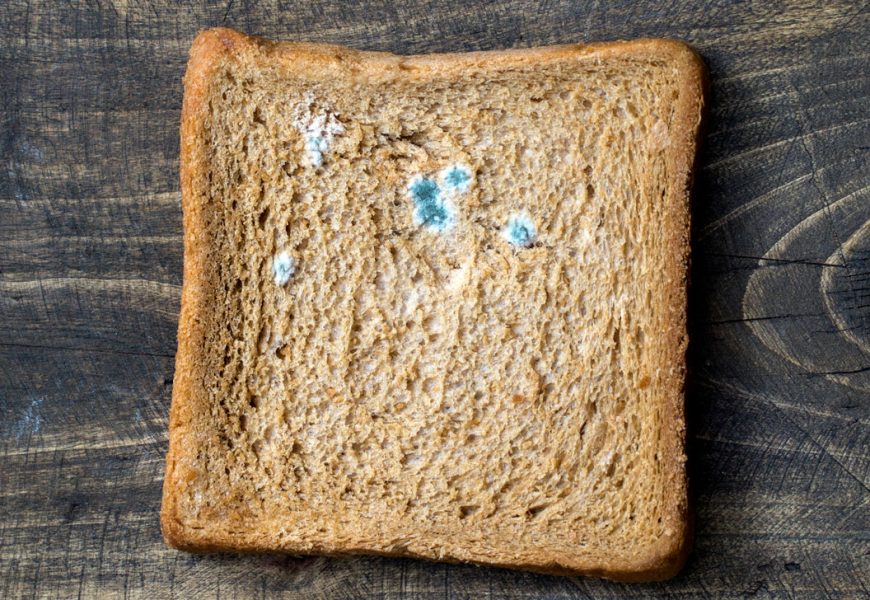Bread is a dietary staple in many cultures, providing a convenient source of carbohydrates, fiber (in whole grain varieties), and essential nutrients. However, many people choose to eliminate or significantly reduce bread from their diets for various reasons, such as weight loss, better digestion, or improved blood sugar control.
When you stop eating bread, your body goes through several noticeable changes, both positive and negative. While some people experience increased energy and weight loss, others may struggle with nutrient deficiencies if they don’t replace bread with healthier alternatives. Let’s explore what happens to your body when you eliminate bread from your diet.
1. You May Lose Weight Due to Reduced Carbs
Bread, especially refined white bread, is a high-carb food. Carbohydrates hold onto water in the body, so when you cut them out, you initially lose water weight. Over time, if you maintain a low-carb diet, you may experience fat loss as well, especially if you replace bread with protein and fiber-rich foods that promote satiety and prevent overeating.
2. You Might Experience Less Bloating
Many people feel bloated after eating bread, particularly those sensitive to gluten or refined carbs. Bread can cause water retention and digestive discomfort. Eliminating it from your diet may lead to a flatter stomach and improved digestion, especially if you replace it with fiber-rich vegetables and whole grains.
3. Your Blood Sugar Levels Will Become More Stable
Refined bread has a high glycemic index, meaning it quickly spikes blood sugar levels. This can lead to energy crashes and increased hunger soon after eating. Cutting out bread helps keep your blood sugar more stable, reducing cravings and lowering your risk of insulin resistance over time.
4. Your Energy Levels May Improve
At first, cutting out bread can make you feel sluggish as your body adjusts to a lower-carb diet. However, over time, your body becomes more efficient at using fats and proteins for energy, leading to more stable and long-lasting energy levels.
5. Your Risk of Type 2 Diabetes May Decrease
High consumption of refined carbohydrates has been linked to an increased risk of type 2 diabetes. When you remove bread, especially processed varieties, from your diet, your body may become more insulin-sensitive, reducing the likelihood of developing diabetes in the long run.
6. Your Digestion Might Improve
Many store-bought breads contain preservatives and additives that can irritate the digestive system. Additionally, white bread lacks fiber, which is essential for healthy digestion. By replacing bread with whole, natural foods, your gut health and bowel movements can improve significantly.
7. You May Experience Fewer Hunger Cravings
Refined bread digests quickly and causes rapid blood sugar fluctuations, leading to frequent hunger pangs. When you stop eating bread and replace it with fiber-rich foods like vegetables, nuts, and whole grains, you feel fuller for longer and experience fewer cravings throughout the day.
8. You Might Notice Improved Mental Clarity
The sugar spikes and crashes caused by bread can contribute to brain fog and difficulty concentrating. When you remove it from your diet and maintain more balanced blood sugar levels, you may find that you can think more clearly and stay focused for longer periods.
9. You Could Develop Nutrient Deficiencies
Whole grain bread provides important nutrients such as B vitamins, iron, and fiber. If you don’t replace it with other nutrient-dense foods like quinoa, brown rice, legumes, and leafy greens, you may develop deficiencies that can impact energy levels, digestion, and overall health.
10. Your Heart Health May Improve
Refined carbs, including white bread, contribute to high cholesterol levels and increased inflammation, both of which are linked to heart disease. Eliminating processed bread and replacing it with heart-healthy foods like nuts, seeds, and whole grains can support better cardiovascular health.
11. Your Mood Might Become More Stable
Blood sugar fluctuations caused by refined bread can lead to mood swings, irritability, and anxiety. A diet with fewer processed carbs and more protein, fiber, and healthy fats helps maintain a steady mood throughout the day.
12. Your Liver Health May Improve
Excess carbohydrate intake, especially from refined foods, can lead to fat accumulation in the liver, increasing the risk of fatty liver disease. Cutting out bread and opting for a balanced diet helps support better liver function and overall metabolic health.
13. Your Skin May Clear Up
High-glycemic foods like white bread have been linked to acne and other skin issues. Eliminating these foods can reduce inflammation in the skin, leading to fewer breakouts and a healthier complexion.
14. Your Immune System May Become Stronger
Bread, especially refined varieties, lacks essential nutrients that support the immune system. When you replace it with nutrient-dense foods like fruits, vegetables, and lean proteins, your body receives the vitamins and minerals needed to strengthen immunity and fight off infections.
15. You May Retain Less Water
Carbohydrates bind to water in the body, and cutting them out reduces water retention. If you often feel puffy or swollen, eliminating bread may help you look and feel leaner.
16. Your Sleep Quality May Improve
Refined carbs, including bread, can cause blood sugar crashes that disrupt sleep. When you switch to a more balanced diet, your body is better able to regulate hormones that promote restful sleep.
17. Your Inflammation Levels May Decrease
Many processed breads contain refined sugars, additives, and unhealthy oils that contribute to chronic inflammation. Cutting them out can help reduce inflammation-related issues such as joint pain, headaches, and digestive discomfort.
18. Your Gut Bacteria May Become Healthier
Processed bread often contains preservatives that can negatively impact gut bacteria. A healthy gut microbiome is essential for digestion, immunity, and even mental health. Removing bread and replacing it with probiotic-rich foods can improve gut health.
19. Your Body May Start Burning More Fat
When you reduce carb intake, your body turns to stored fat for energy. This metabolic shift can help with weight loss and improve overall body composition.
20. You’ll Be More Conscious of Your Food Choices
Giving up bread forces you to think more about what you eat. Instead of reaching for a sandwich or toast, you’ll explore healthier alternatives like protein-rich meals, vegetables, and whole grains, leading to better overall nutrition.
Final Thoughts
Eliminating bread from your diet can bring a range of benefits, from weight loss and stable energy levels to better digestion and improved skin health. However, bread—especially whole grain varieties—also provides important nutrients, so it’s essential to replace it with healthier alternatives rather than just cutting it out completely.
If you’re considering removing bread from your diet, focus on consuming more whole, natural foods such as vegetables, legumes, nuts, seeds, and whole grains like quinoa or oats. This way, you can enjoy the benefits of a lower-carb diet while still ensuring you get all the nutrients your body needs for optimal health.




